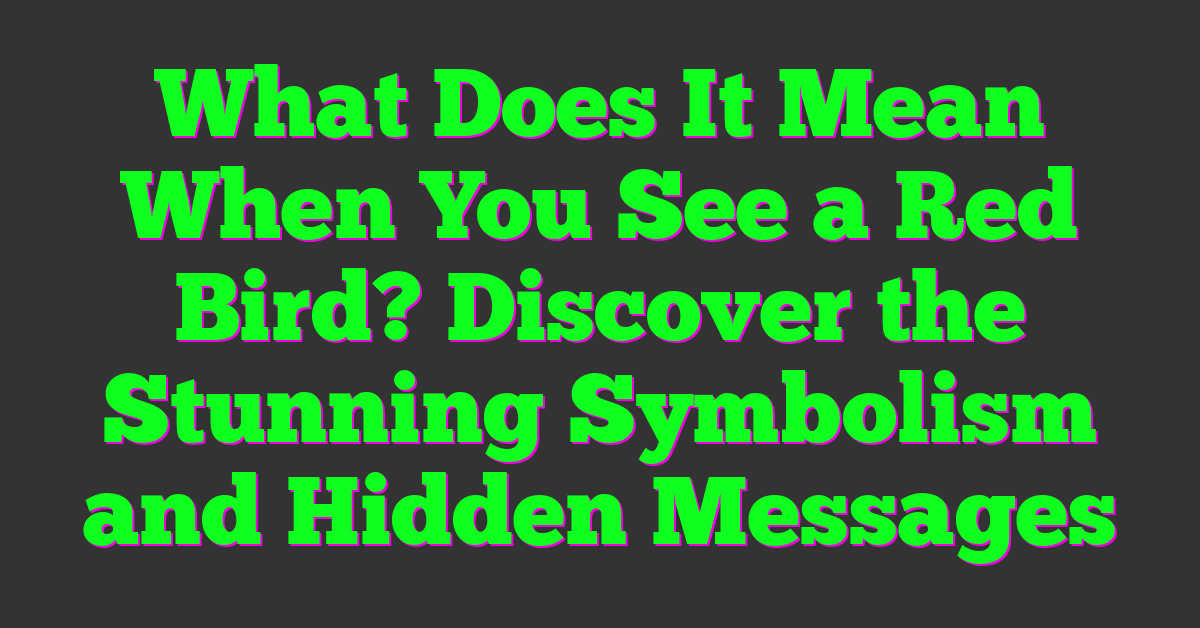Ever wondered what it means when you spot a crow? These mysterious birds often get a bad rap, but they carry much more significance than just their spooky reputation. Whether it’s an unexpected encounter or a frequent visitor in your yard, seeing a crow can be a fascinating experience.
Historical and Cultural Significance of Crows
Crows hold a prominent place in many cultures and histories, symbolizing more than just their physical presence.
The Mythological Role of Crows Across Various Cultures
Crows appear in mythologies worldwide, often as messengers or symbols of transformation. In Greek mythology, the crow was sacred to Apollo, who associated it with prophecy. In Norse mythology, Odin’s ravens, Huginn and Muninn, symbolized thought and memory. Native American tribes often view crows as tricksters and shape-shifters, symbols of life mysteries and transformation.
Crows in Folklore and Ancient Beliefs
Folklore often casts crows as omens or supernatural beings. In many European traditions, a single crow sighting represented bad luck, while two crows signified good fortune. In medieval England, crows in battlefields indicated the souls of the fallen. Ancient Romans considered crows augurs of the gods’ will, interpreting their flight patterns for guidance. Crows continue to inspire awe and curiosity, resonating deeply across generations and cultures.

The Science Behind Crow Sightings
Seeing a crow can spark curiosity, often laden with symbolic significance. But science also offers fascinating insights into these mysterious birds.
Crows as Symbols of Intelligence and Adaptability
Crows possess remarkable intelligence, often compared to that of primates. Researchers have observed that crows can use tools, recognize human faces, and solve complex puzzles. For example, New Caledonian crows create hooks out of sticks to extract insects from tree bark[^1^]. This adaptability allows them to thrive in various environments, from urban areas to dense forests.
How Crows Interact with Humans and the Environment
Crows maintain intricate relationships with humans and their surroundings. Studies show that crows remember individual human faces, especially those of people who have posed a threat[^2^]. This memory helps them avoid danger and navigate their environment more effectively.
Additionally, crows contribute to the ecosystem by dispersing seeds and controlling insect populations. When you see a crow, it’s not just a random encounter—these birds play a crucial role in maintaining ecological balance.
Spiritual Meanings of Seeing a Crow
Crows are often seen as spiritual beings, carrying deep, symbolic meanings that vary across cultures.
Good Luck and Misfortune: Interpreting Crow Encounters
Seeing a crow can signify different things based on context. When encountered in pairs, crows often represent good luck and harmony. If a single crow appears, it might be interpreted as a warning or a sign of misfortune. In certain traditions, specifics like the crow’s behavior matter. For instance, a crow cawing repeatedly could symbolize an impending change or unexpected news.
Spiritual Messages and Crow Symbolism in Dreams
Dreaming of crows opens doors to understanding unconscious messages. If you see a crow in your dreams, it may symbolize intelligence, mystery, or a warning. A crow flying overhead often means you’re connecting with your higher self. Dreaming of a crow speaking suggests intuitive messages or secrets coming to light. The color and number of crows in dreams also hold significance. For instance, a black crow typically symbolizes transformation, while multiple crows may indicate heightened awareness and insight.
Common Superstitions Related to Crows
Crows often evoke strong emotions and beliefs, influenced by ancient lore. They’re seen as omens, protectors, or even messengers.
How Superstitions Influence Human Behavior
Superstitions about crows significantly impact human actions and decisions. People might avoid paths if they see a crow, associating it with bad luck. In some cultures, a crow near a house signifies an imminent visitor, prompting preparation. Certain individuals may even perform rituals to counteract perceived omens, ensuring protection or attracting specific outcomes.
Variations in Crow-Related Beliefs Globally
Crow-related superstitions vary widely across cultures:
- Western Cultures: View crows as omens of death or bad luck. Seeing a single crow is particularly foreboding.
- Native American Beliefs: Consider crows as symbols of transformation and change, acting as spiritual guides.
- Japanese Folklore: Sees crows as messengers of deities, bringing wisdom or warnings.
- Hindu Culture: Associates crows with ancestors. On certain days, feeding crows helps ensure that deceased ancestors are at peace.
These diverse beliefs demonstrate crows’ multifaceted symbolism.
Conclusion
« Unlock the Secrets of Your Blue Aura: Meaning, Impact, and How to Balance It
Discover the Fascinating Shark Symbolism & Meaning: Unveiling Power, Fear, and Resilience »
Seeing a crow can be a fascinating experience filled with layers of meaning. Whether you’re drawn to their historical and cultural significance or intrigued by their intelligence and adaptability, there’s no denying that crows hold a unique place in our world. Spiritually, they can serve as powerful symbols and messengers, offering insights into your life’s journey.
Next time you encounter a crow, take a moment to reflect on what it might be trying to tell you. Whether it’s a sign of transformation, a warning, or a connection to your higher self, these remarkable birds invite you to look deeper and embrace the mysteries they bring.




